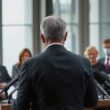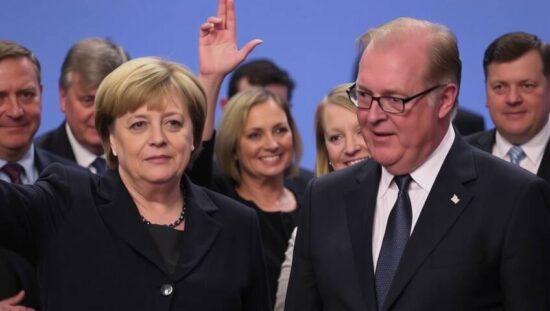The latest survey by Forsa shows a further decline in voter support for the Union. In the weekly opinion poll conducted by the RTL and ntv research institutes, the CDU and CSU have lost a point and now stand at 30 percent.
The AfD, on the other hand, has gained a point and is back at 19 percent, its highest level since January 2024. The support for all other parties has remained unchanged (SPD 17 percent, Greens 13 percent, FDP 4 percent, Left 3 percent, BSW 4 percent, and Others 10 percent).
If the German people could directly elect the Chancellor and the choice was between Olaf Scholz (SPD) and Friedrich Merz (CDU), currently 26 percent, a one-point decrease from the previous week, would vote for Scholz, while 26 percent would vote for Merz. Nearly half (48 percent) would not vote for either of the two.
Men are more likely to vote for Merz (31 percent) than Scholz (22 percent), while women are more likely to vote for Scholz (29 percent) than Merz (21 percent).
When asked who they trust most to drive the German economy forward as Chancellor, 18 percent of respondents named Scholz, while 44 percent named Merz. 38 percent of respondents do not trust either of the two to drive the German economy forward.
Only among SPD supporters does a majority (52 percent) believe that Scholz has more economic competence than Merz (23 percent). In particular, Union and FDP supporters (82 and 80 percent, respectively) trust Merz more in this regard. East Germans (51 percent) and supporters of the AfD (59 percent) and BSW (60 percent) are more likely to believe that neither of the two has the ability to drive the German economy forward.
In contrast, the opinions are more balanced when it comes to who is trusted to ensure the external security of Germany as Chancellor, with 34 percent trusting Scholz, 34 percent trusting Merz, and 32 percent not trusting either of the two.
The data on Chancellor and party preferences were collected from December 10 to 16. The sample size was 2,501 respondents. The assessment of Scholz and Merz in the areas of economy and external security was based on a survey of 1,000 people on December 13 and 16.





